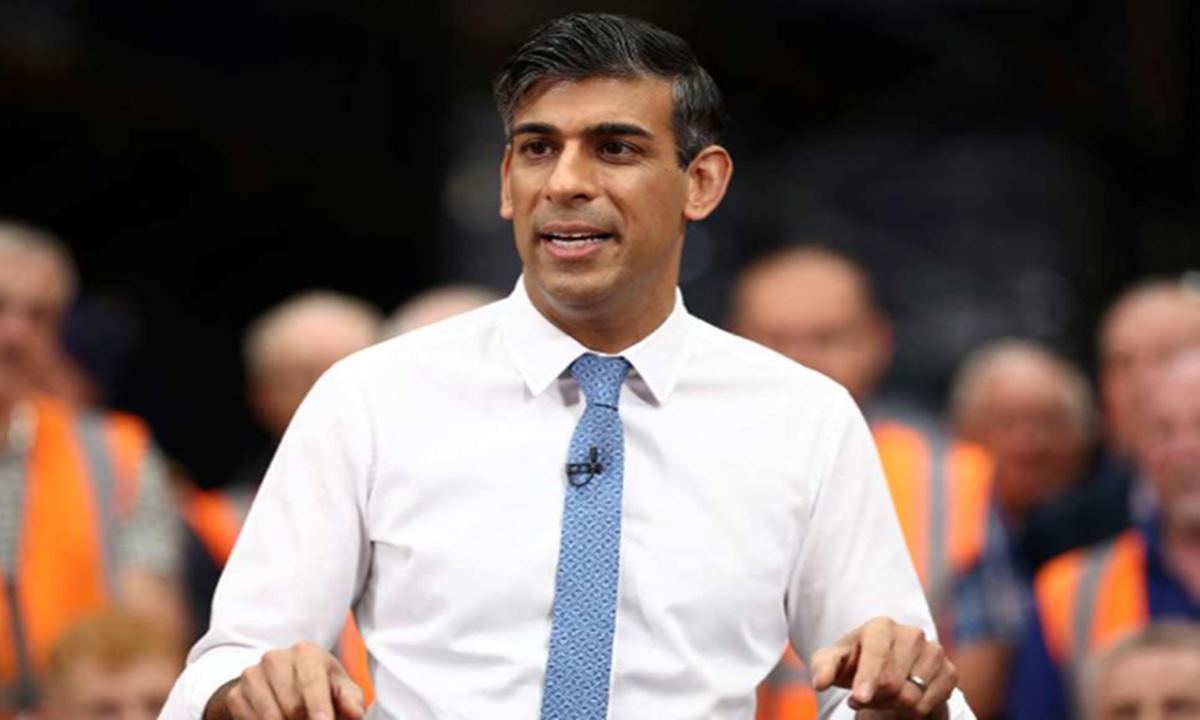British Prime Minister Rishi Sunak has officially announced that the UK's general election will be held on July 4, ending months of speculation. Sunak made the announcement following a surprisingly strong economic performance in the first quarter of the year, which saw the UK exit a shallow recession.

British Prime Minister Rishi Sunak has officially announced that the UK’s general election will be held on July 4, ending months of speculation. Sunak made the announcement following a surprisingly strong economic performance in the first quarter of the year, which saw the UK exit a shallow recession. With Parliament set to be dissolved in six weeks, Sunak and his Conservative Party colleagues, along with Opposition Leader Keir Starmer, have hit the campaign trail.
Sunak’s rain-soaked speech on the steps of 10 Downing Street set the political scene ablaze as he launched his campaign with the slogans “Clear Plan, Bold Action, Secure Future.” Meanwhile, Starmer of the Labour Party has opted for a simpler one-word campaign message: “Change.” The election date announcement came as a surprise to many, as it was not expected until October, marking Sunak’s three years in office. The Parliament has entered a “wash-up” phase, concluding non-contentious legislation before its dissolution.
Despite the positive economic indicators, Sunak faces significant challenges. Polls predict a record defeat for the Conservative Party, with Labour maintaining a firm lead after a series of by-elections and local election victories. This election could potentially end the Conservative Party’s 14-year rule, which has been marred by various controversies and economic challenges. High inflation, poor economic growth, and contentious policies such as Sunak’s Rwanda deportation plan have fueled voter dissatisfaction.
On July 4, voters across the UK will elect 650 members to the House of Commons for a term of up to five years. The party that secures a majority will form the next government, and its leader will become the prime minister. This election pits Sunak’s right-wing Conservatives against Starmer’s left-leaning Labour Party.
Sunak, the first UK PM of Indian heritage, stressed the importance of building on progress and maintaining economic stability in his campaign. Starmer, a former director of public prosecutions, is positioned as a strong contender to lead the country. Other significant parties include the Scottish National Party (SNP), which advocates for Scottish independence; the Liberal Democrats; and the Democratic Unionist Party (DUP), which supports maintaining ties between Britain and Northern Ireland. The new Reform Party, formed by Tory rebels, might also impact the Conservative vote.
Former Labour leader Jeremy Corbyn, who was expelled from the party over his stance on anti-Semitism, is expected to contest independently. Leaders like Ed Davey of the Liberal Democrats and John Swinney of the SNP are also looking to capitalize on voter discontent with the Conservatives.
Sunak’s decision to call early elections has caused concern among Conservative leaders, many of whom fear losing their seats due to anti-incumbency sentiments after 14 years of Tory rule. The rising cost-of-living crisis and Sunak’s unmet poll promises are significant issues. Key election topics include healthcare, the environment, and climate change, which will play crucial roles in influencing voter decisions.
The announcement of early elections has significant implications for the ongoing India-UK Free Trade Agreement (FTA) negotiations. The FTA talks, which began in January 2022, have aimed to boost bilateral trade currently worth £38.1 billion annually. Despite efforts to finalize the agreement before the elections, the unexpected election date has likely delayed the process.
India and the UK have held 13 rounds of talks, with the 14th round starting in January. The negotiations have focused on bridging differences on issues such as the mobility of people and import duty concessions. While the Conservative government under Sunak hoped to finalize the deal, the election announcement has shifted priorities.
Experts believe that the election results will not significantly alter the trajectory of the FTA talks. The Labour Party has expressed strong support for the agreement, committing to “finish the job” if they come into power. However, the timeline for finalizing the deal remains uncertain.
As the UK prepares for a high-stakes general election, the political landscape is set for significant changes. The results will not only determine the next government but also influence critical policies and international agreements, including the India-UK FTA. Both major parties are gearing up for a fierce campaign, with economic stability, healthcare, and climate change among the top issues for voters.

